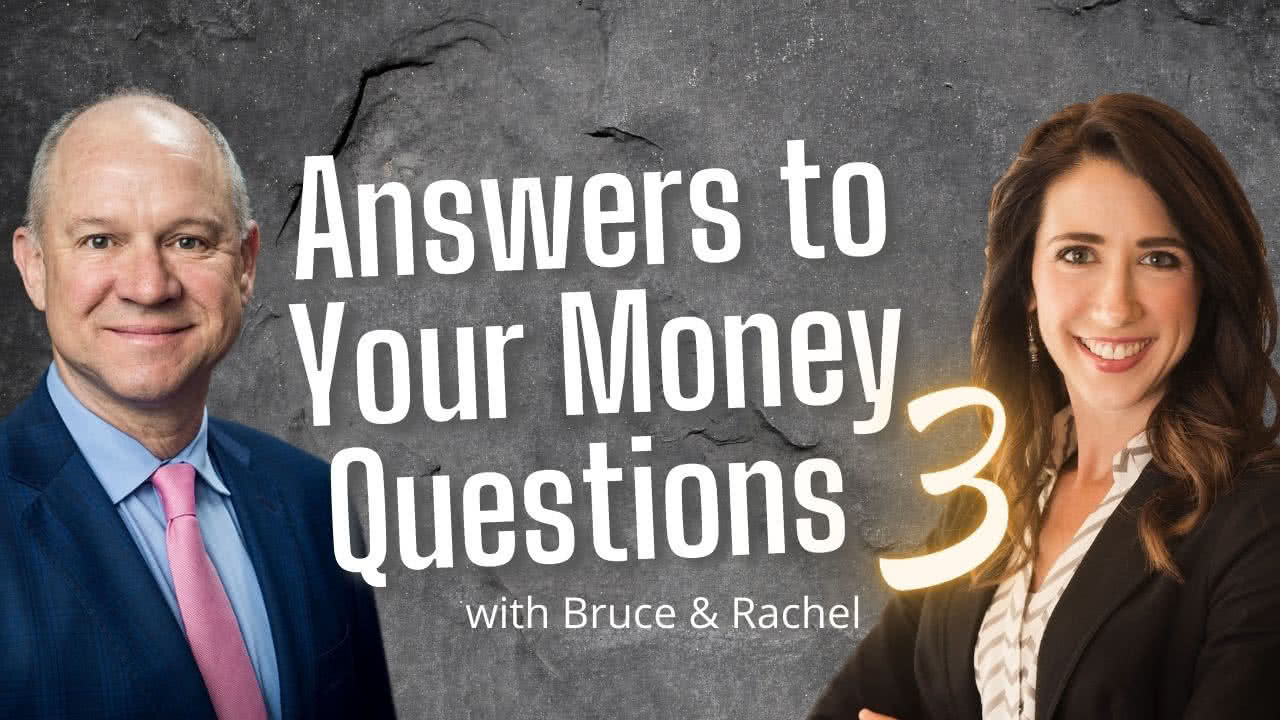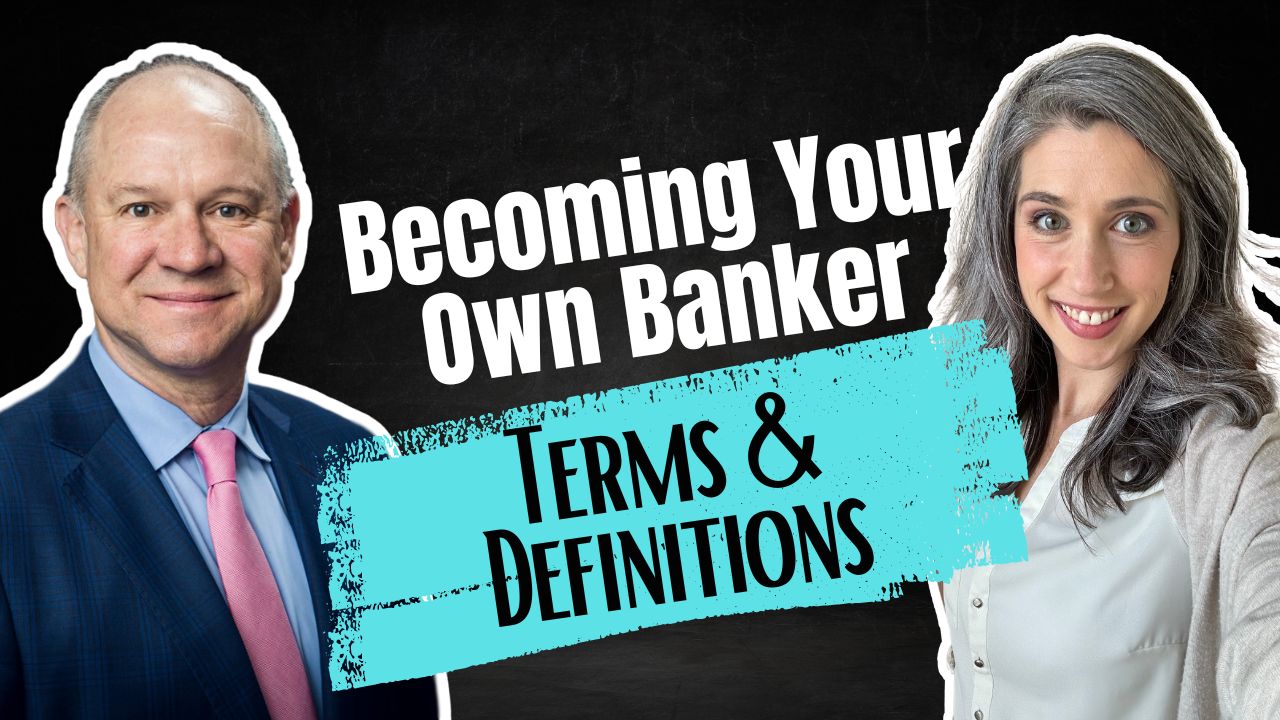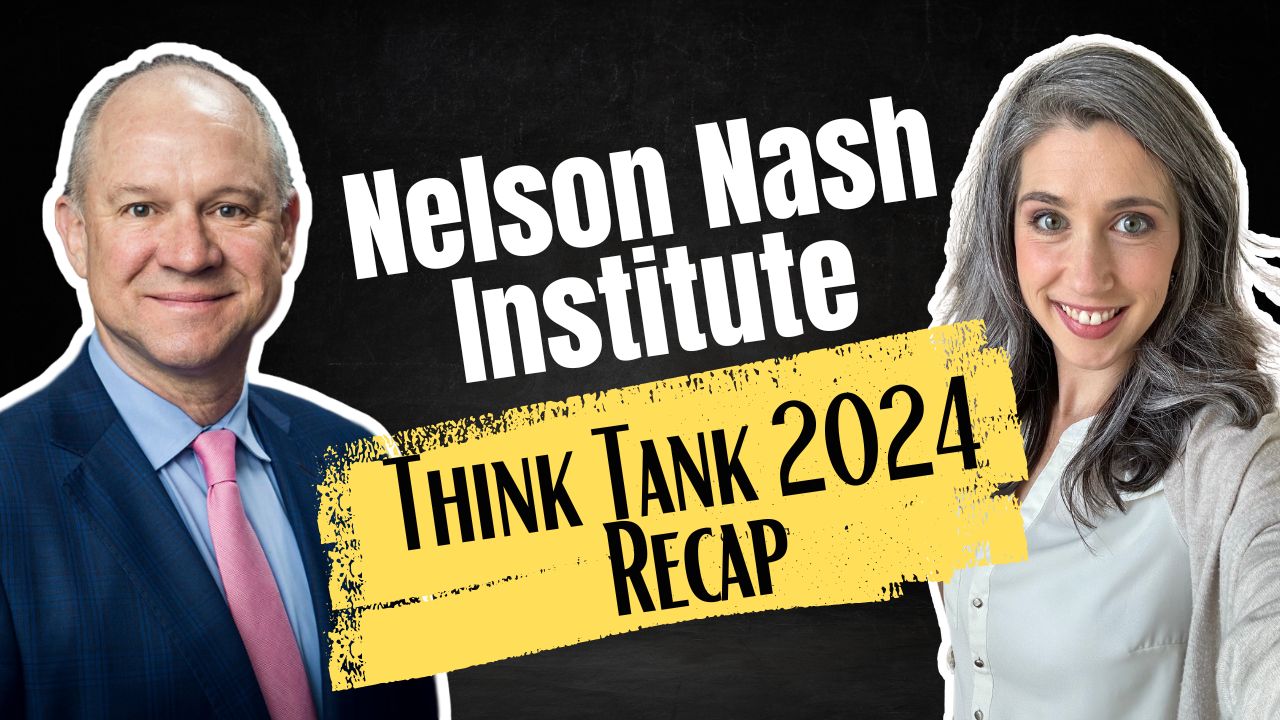
Answers to Your Money Questions, Part 3
We’re so thankful for the opportunity to answer your money questions and clear up your confusion. If you’re stuck, we want to help you make sense of the situation so you can move forward.
Today, we’re continuing the conversation to answer questions from you—our audience. We want to help you on your quest to control your financial future.
There are some great ones here that might be on your mind too. So maybe you’ll get the answer you’ve been needing, and get one step closer to your goals… OR maybe it will prompt you to ask a question of your own… tune in now!
Podcast: Play in new window | Download (Duration: 47:20 — 54.2MB)
Subscribe: Apple Podcasts | Spotify | Android | Pandora | RSS | More
Table of contents
Why is Whole Life Insurance “Better” Than Indexed Universal Life Insurance?
The answer boils down to the contractual guarantees of whole life insurance versus IULs.
An IUL contract is roughly twice the size of a whole life insurance contract. The reason it is so lengthy is that the insurance company has to include explanations of all the risks involved. An IUL carries much more risk because of its correlation to the stock market. And because it’s risky, taking policy loans from an IUL shifts even more risk off of the company’s plate and onto yours.
Agents often sell IULs as the best of the stock market’s upside, and you can’t lose money. However, that isn’t actually true. To begin with, you don’t get the best of the market, because IULs often have a maximum rate, or a participation rate, or some other provision that limits how well you can do. And while you cannot lose money from a downturn in the stock market, your policy cash value can decrease. Unfortunately, people don’t understand that if the policy doesn’t perform as well as the “hypothetical examples” given by the insurance company, the companies can increase the cost of insurance, which reduces your account balance.
Whole life insurance guarantees that the money credited to your cash value will not decrease. So although dividends are not guaranteed in whole life insurance, they have a great track record. That, and the only way your policy will decrease is through withdrawals. In fact, your whole life contract guarantees that your cash values floor will increase every year.
The bottom line is that we do not endorse using an IUL as an infinite banking policy. You can learn more about this in Privatized Banking: What Kind of Policy Do You Use?
Can You Explain “Other People’s Money”?
One viewer asked:
Can you explain OPM further? In real estate, when you use OPM as a loan, your cash in the bank is readily accessible. For example, let’s say I have $100k in the bank & I borrow $100k to buy a property instead of paying cash. I’ve borrowed $100k and still have access to $100k to buy another identical property for cash (access to $200k total). But with a policy loan, if my cash value is $100k, let’s say the insurance company collateralizes my $100k cash value and they lend me $100k, I can not go back to my policy and cash out my $100k cash value since it’s collateralized. This means I only have access to $100k, not $200k, like in the first scenario. Am I mistaken?
We love that this question is so thoughtful and detailed. To answer the first part of your question, we agree! If you have $100k in the bank as cash, and you get an unsecured loan of $100k, you are leveraging OPM (other people’s money) to have greater access to capital. If you’re using infinite banking, and you have $100k of cash value and you collateralize it, you are tying it up so that you can no longer use it. However, you’re getting access to $100k of the insurance company’s money and leaving your cash value to sit and continue accumulation. Essentially, you’re trading your access, so that you can have uninterrupted compounding growth—with dividends and interest.
Making an Apples to Apples Comparison
A more “apples to apples” comparison would be if you used your $100k of cash to secure your bank loan. And the reason you might do this is to have better interest rates. Then, in both instances, you have $100k of access while still growing that money.
Also, just because you have the ability to use your policy as collateral for a loan, doesn’t mean you have to. You may have a better interest rate on a bank loan in general and may choose to start there. Then you still have access to that cash value down the road. In other words, you can leave your cash value where it is, and get a loan with the bank, and still have a total pool of $200k accessible. The real difference here is where your store your cash, and how you use it. And we think life insurance gives you better compounding growth and more options.
Additionally, as you pay down your loan, and as your cash value increases, you replenish what’s available to you. So if your policy grows substantially in a year (and its growth will get better and better each year, thanks to compounding), you’ll have more cash value to leverage. A typical savings account doesn’t grow as quickly, and if you withdraw the cash, you interrupt any compounding taking place.
Here are several articles that will help with this concept:
- Opportunity Cost: https://themoneyadvantage.com/opportunity-cost-the-invisible-cost-of-financing/
- Spender, Saver, Steward: https://themoneyadvantage.com/spend-money-spender-saver-steward/
Can You Explain the Difference Between Dividends and Interest?
Dail asked us:
My initial understanding of dividends (repayment of premiums) is a single annual event but I don’t get how folks are saying Cash Value earns “interest”? There’s one CFP that constantly says Cash Value earns 4%. Is this true? I thought dividends were the ONLY tax-free capital gain. Look forward to your unique explanation of where my confusion occurs.
There is in fact interest that you can earn on your cash value, which is one guarantee of life insurance. Often this interest rate is a 4% gross interest rate. The company takes the costs of running the insurance company out of this gross figure. Costs, and the calculations of those costs, differ by company. And that growth actually gets added to your policy every day. If you checked your cash value every day, you would see it growing.
Then, every year, mutual life insurance companies declare a dividend rate. Dividends are non-guaranteed but highly anticipated. The dividend is simply excess profits, which is why you sometimes hear people say, “All they’re doing is returning your premium.” In the eyes of the IRS, that is true. However, what’s really happening is the company is experiencing better than projected profits from their bonds, as well as potentially lower mortality rates and other factors.
This means that even without dividends, your cash value will grow because of the guaranteed interest portion.
We also want to address where Dail mentions “tax-free capital gain.” This tax-free aspect is actually less about how your account grows and more about how you access the money. If you withdraw cash from your cash value, you do have to pay taxes on any gains. However, using the policy loan provision allows you to use your growth without causing a taxable event.
More on dividends: https://themoneyadvantage.com/whole-life-insurance-dividends/
Is it Wise to Run Expenses Through an Infinite Banking Policy?
An unnamed viewer asked:
Does this make sense to you? I’m not fully 100% sold on this Infinite Banking thing but I’m thinking of starting a small policy to take it out for a test drive…. begin small, test it with loans and payback schedules and see how it functions in a 5 to 10 year environment.
I have a rental worth $650,000. It brings in around $27,000 in income a year, or $2300 per month. We own it free and clear. Would it make financial sense to set up a policy to run my yearly expenses through that policy? I figure I spend around 20,000 per year on expenses including taxes, insurance, and future capital cost and vacancy allowances.
What are your thoughts on establishing a policy of around $20,000 max per year and maybe a $2,000 minimum premium in case we could not fully fund in extreme emergencies?
We love this question because starting small is a fantastic option. As Bruce says, take small steps, but take quality steps. We consider this small step a quality one. For starters, the sooner you have life insurance coverage, the sooner you will see your policy grow, and be able to use it. Another reason is for the pure protection that life insurance offers, and having coverage in place can go a long way to ease the stress of “what if” thinking. Starting small will also help ease some of the skepticism you or your wife may feel, without either of you feeling as though you’re going off the rails.
Funding vs. Taking Loans
When it comes to paying your expenses via policy loans, especially in the early years of your policy, we recommend proceeding slowly. One reason is that cash value accumulation often starts slow. So you won’t have access equal to what you pay in premiums when you start out. It may be wise to fund your policy for a few years—we recommend at least one year, preferably two or three years—before seriously employing the infinite banking concept. You can employ it earlier, however, this becomes an administrative nightmare working with low cash values.
Once you’ve built up enough cash value, instead of making monthly transactions in and out of the policy, you can take one larger loan to pay your expenses, then pay the loan back with your rental income. This way you only have one “withdrawal.” Doing this strategy even semi-annually can simplify the process and make it easier to complete.
If you’re interested in funding your policy as much as possible in the first year, at least, for maximum early cash value, paying the full PUA premium helps. An early emphasis on funding your policy will create a lot more flexibility for you in the future.
Book A Strategy Call
Do you want to coordinate your finances so that everything works together to improve your life today, accelerate time and money freedom, and leave the greatest legacy? We can help! Book an Introductory Call with our team today https://themoneyadvantage.com/calendar/, and find out how Privatized Banking, alternative investments, or cash flow strategies can help you accomplish your goals better and faster. That being said, if you want to find out more about how Privatized Banking gives you the most safety, liquidity, and growth… plus boosts your investment returns, and guarantees a legacy, go to https://privatizedbankingsecrets.com/freeguide to learn more.
Becoming Your Own Banker, Part 28: Infinite Banking Definitions
Have you ever felt like you’re on a financial hamster wheel, constantly spinning but never gaining traction? Join us as we unpack the epilogue and glossary of Nelson Nash’s “Becoming Your Own Banker.” It’s a journey through the intricate philosophy of IBC, as we cover Infinite Banking definitions that shows how effective money management can…
Read MoreNelson Nash’s Legacy: Think Tank 2024 Recap
Embark on a transformative financial odyssey with us as we reflect on our profound experiences at the Nelson Nash Think Tank for 2024. Unlock the doors to personal economic empowerment with the Infinite Banking Concept (IBC), a brainchild of the late Nelson Nash that revolutionizes the use of dividend-paying whole life insurance. We shed light…
Read More


